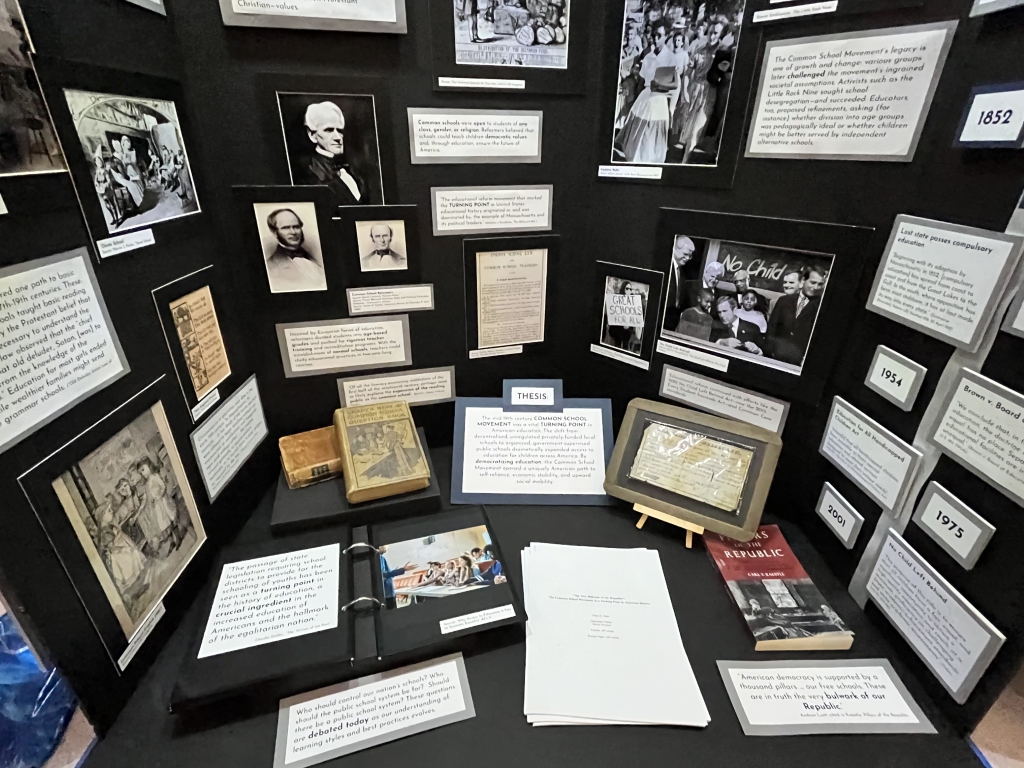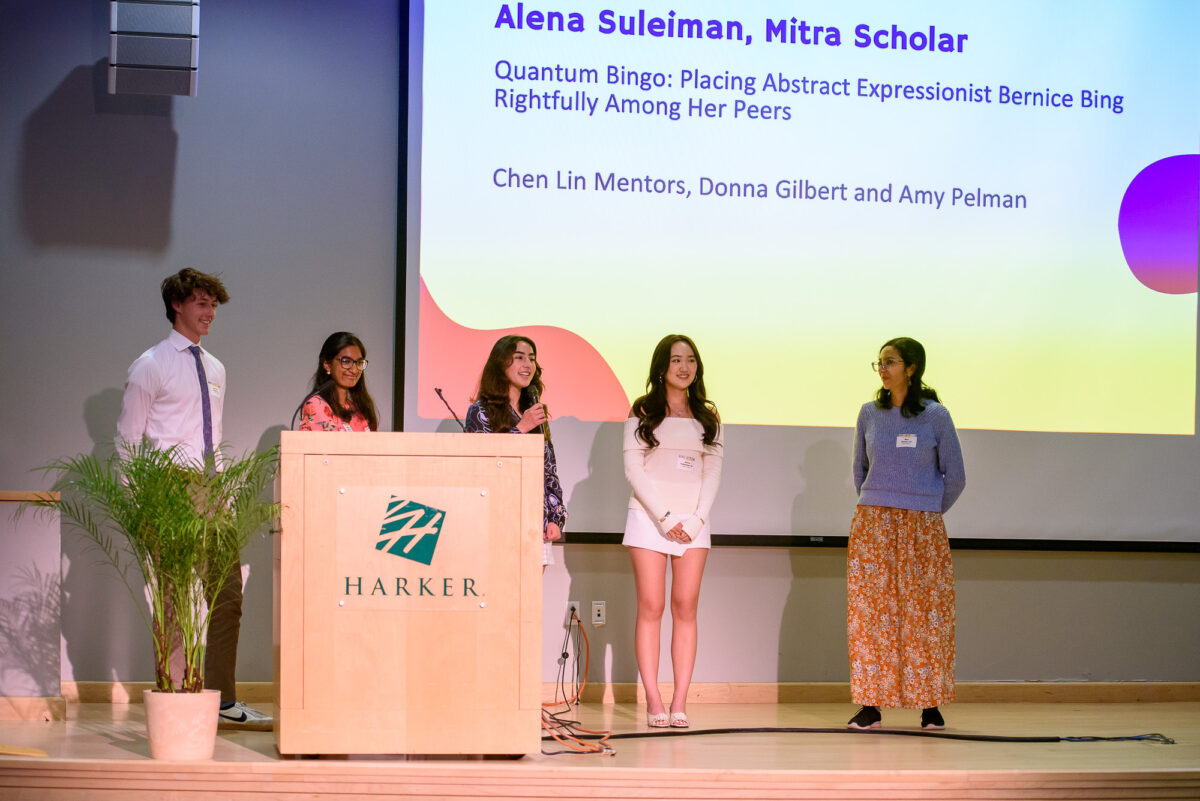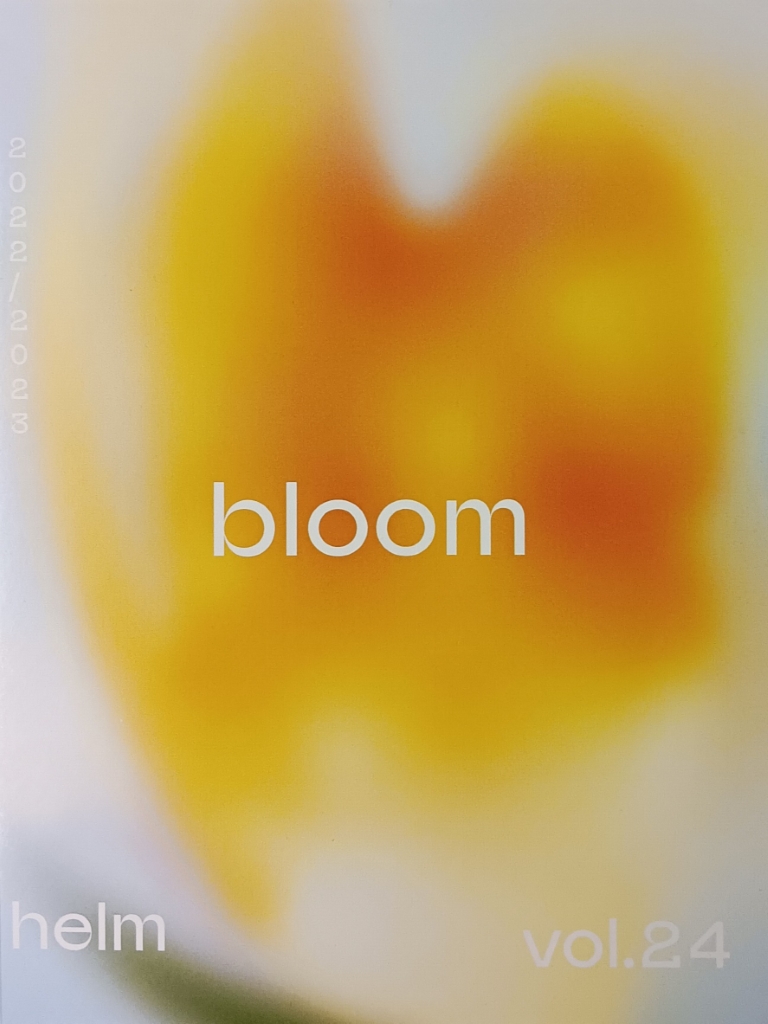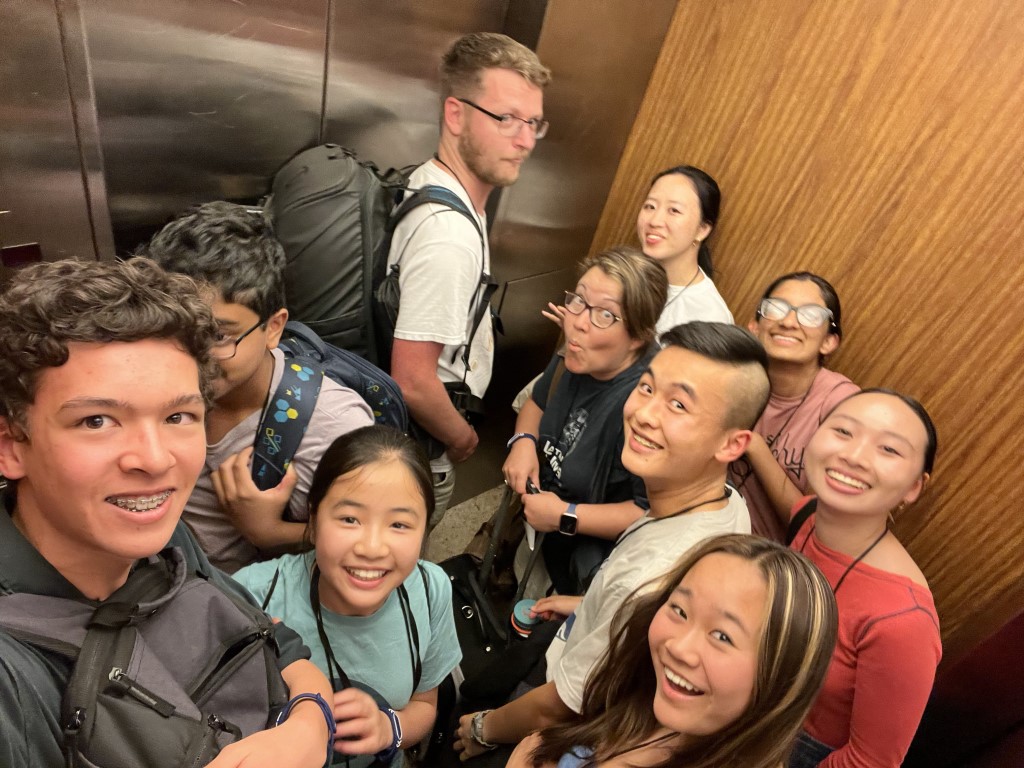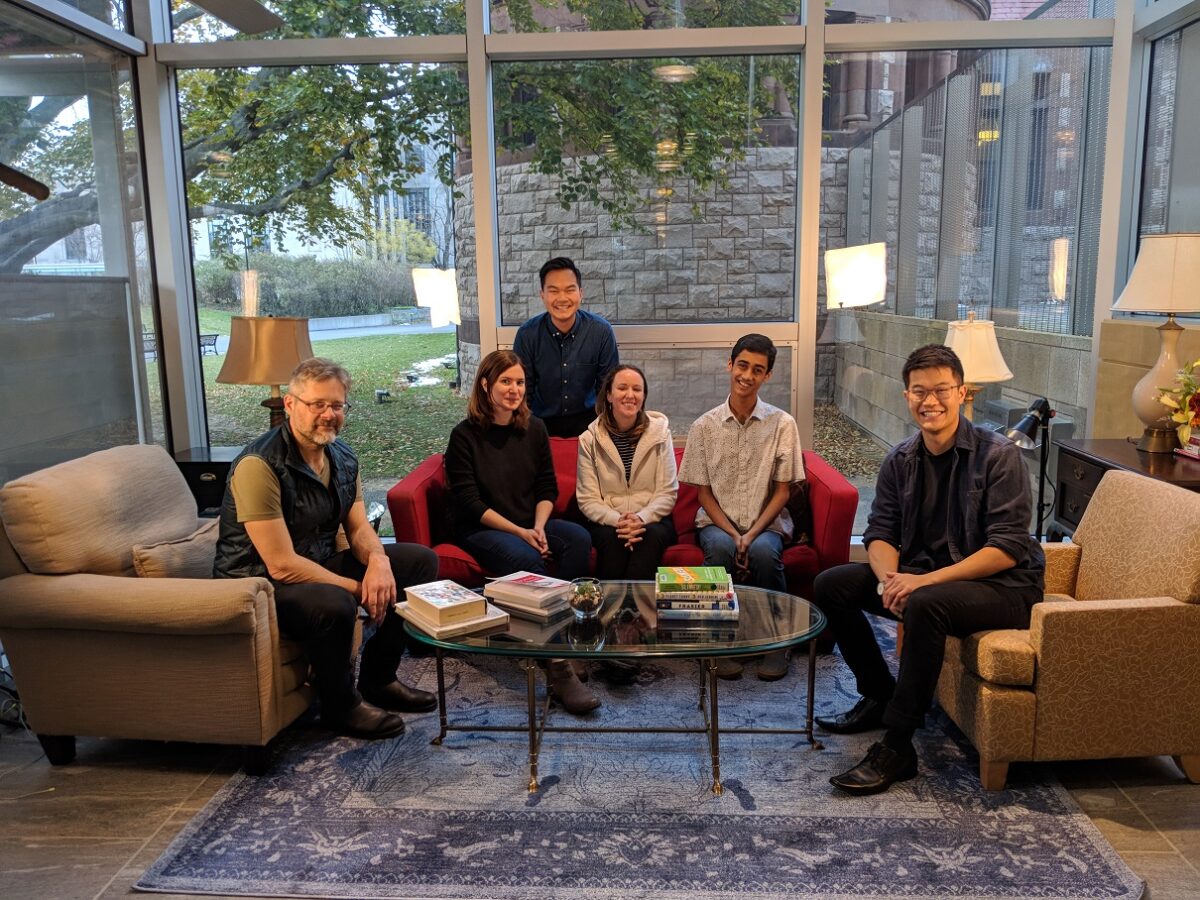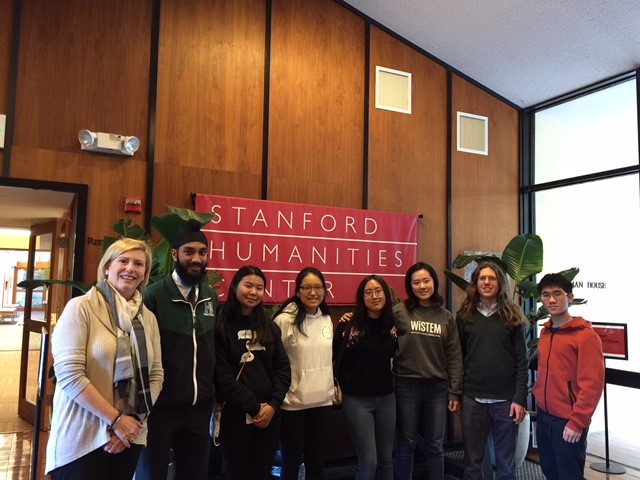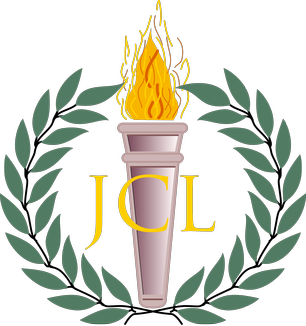Last week, senior Fern Biswas was named a finalist in the search for the Alameda County Youth Poet Laureate.
Humanities
Two students receive accolades in National History Day competition
Last month, two Harker students received accolades at the regional National History Day competition in Sacramento.
2023-24 Near-Mitra scholars celebrated at special event and reception
On April 23, this year’s student scholars in the John Near and Mitra Family Scholar Grant Program were honored at a special event held at Nichols Hall.
HELM named finalist for CSPA Crown Award
The 2022-23 edition of the Harker Eclectic Literary Magazine (HELM) was named a finalist for the Columbia Scholastic Press Association Crown Award
Middle and upper school students take top spots at NJCL Convention
In late July, 12 Harker upper and middle school students attended the National Junior Classical League Convention, held this year at Emory University in Atlanta.
Student research paper published in Concord Review
Junior Sally Zhu was recently published in the Concord Review, an academic journal featuring the historical research of high school students.
Student’s work at Harvard examines the convergence of tech and the arts
Next month, senior Nikhil Dharmaraj will visit Cambridge, Mass., to speak on a panel about the intersection of artificial intelligence and the humanities with Harvard University faculty members Jessica Fjeld and David Weinberger of Harvard’s Berkman Klein Center for Internet & Society.

